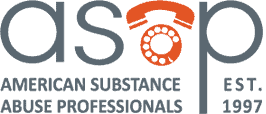Marijuana-related problems appear to be growing more prominent on college campuses, where students’ perception of risk from use is declining, but results of a new survey suggest a lack of awareness of the situation among the college administrators most in a positon to effect change.
The Hazelden Betty Ford Institute for Recovery Advocacy and the philanthropic Mary Christie Foundation today released results of a survey of academic professionals at a national forum on college student substance use held at the University of Maryland. The survey of professionals in academic affairs, student affairs and student health found that while most administrators on the front lines of student health services see marijuana use as a serious problem on their campus, most administrators in the farther removed roles of academic and student affairs do not.
“This survey underscores what many of us have been worried about: although data show that consistent marijuana use is a serious threat to students’ well-being and academic performance, there is a lack of urgency to address this problem in meaningful ways,” Robert Caret, chancellor of the University System of Maryland and chairman of the National Association of System Heads (NASH), said in a news release about the survey.
Main findings
These are some of the key findings of the survey of 744 NASH member professionals:
- Just over half of respondents believe a growing number of students over the past three years see marijuana use as safe. Seven in 10 respondents also report that the number of students with marijuana-related problems has either increased or been stable over the same period.
Some of the most prominently reported problems administrators are seeing in association with marijuana use are issues with academic performance, decreased student motivation, and mental health problems. - Most administrators believe colleges need to implement efforts to reduce marijuana use among students, but only one in three combined say that their own college is doing either a great deal (5%) or a fair amount (28%) in this area. Only 23% of respondents said their institution plans to increase marijuana use prevention activities over the next few years.
Campus resources devoted to addressing problematic marijuana use are scarce. Around three-quarters of colleges that were part of the survey have no addiction medicine specialist on staff, and only 48% have at least one counselor who possesses a substance use specialty. - The most commonly reported barriers to more effective enforcement and prevention activity on campus include a lack of resources, a lack of information, a lack of coordination, and student opposition.
- “Fortunately, there are also some indications that training and information sharing might bridge some of these gaps, and that educational professionals would be open to such an approach,” the survey report states.




